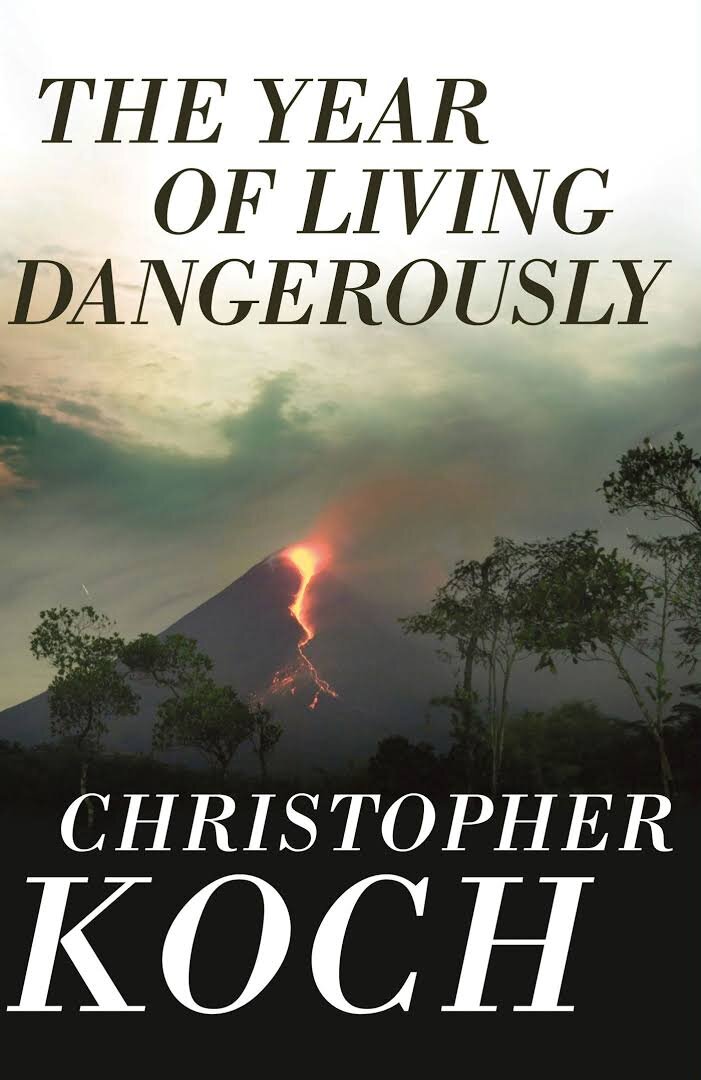The Year of Living Dangerously by Christopher J. Koch (Vintage)
There are some novels that haunt you with a single paragraph, a few well-chosen words.
As our world appears more and more unstable and unpredictable, statements of fact carry the same credibility as fortune cookies and entrails of chickens divulge as much as the pronouncements of experts. In these times, the following paragraph holds a special resonance.
"There is a definite point where a city, like a man, can be seen to have become insane...It's always difficult to believe that someone we know has crossed into that territory where no one from our side can reach him and from which messages crackle back that no longer make any sense...That's how it was with Sukarno's Jakarta..."
The Year of Living Dangerously was made into a movie that has become so iconic that its plot has been boiled down into the triangular relationship between Mel Gibson, Sigourney Weaver, and the eerily androgynous Linda Hunt. These three actors have so thoroughly claimed this novel that it is a shock to read it at last and find they are not its central characters. There is only one main character and that is the city of Jakarta, seen through the eyes of journalists who struggle to interpret it to a world that can barely find Indonesia on a map.
These are men who report what they see, hear, and have been told, retreating at the end of the day to an airconditioned hotel bar that they have claimed as their turf. A competitive and jangling community, they drink, tell stories, and cling to each other's company. Jakarta intrudes upon their little sanctuary only as far as they allow it to, and only one of them ventures far beyond it after work--Billy Kwan, the half-Chinese, half-Australian dwarf who searches for his home in the world.
A man of restless intellect, Kwan is an explorer of ideologies, of people, of places, a photographer whose images define his questions. A comic figure to his journalist colleagues, he recognizes a spirit similar to his own in a newly arrived reporter, Guy Hamilton, and offers to be Hamilton's eyes.
As Billy leads Hamilton into Jakarta, the city takes on details, but never a shape, much the same as the antagonistic policies of Indonesia's leader, Sukarno. Poverty and danger lie in Jakarta's shadows, as well as the strained tension that mounts with each of Sukarno's speeches. Confrontation is the prevailing theme, and as Sukarno becomes more and more impassioned and his enemies are found closer and closer to home, no one feels safe.
In a city filled with foreboding and menace, disaster seems to be the only possible outcome. Love dissolves into mistrust, friendship into betrayal, and why this is happening is as much a mystery as how it will all end. Physical descriptions pinned to a page with words are the only concrete truth, and those descriptions are where this novel soars.
Sukarno is deposed, half a million people are slaughtered, the journalists are sent to the next global hotspot, and Jakarta goes on living. The place that is evoked so tangibly by Christopher Koch remains, unconsumed by its year of insanity and uncertainty. Decades later, our twenty-first century world, caught in its own insane and unncertain epoch, perhaps can find comfort in Jakarta's survival.
